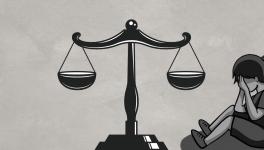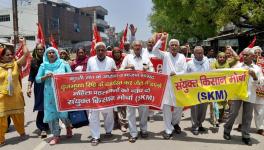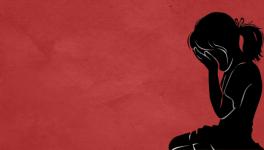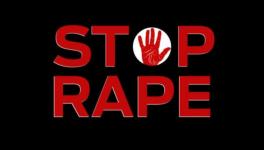Sexual Abuse Charges by Visually Impaired Girls in Dehradun Raise Many Questions
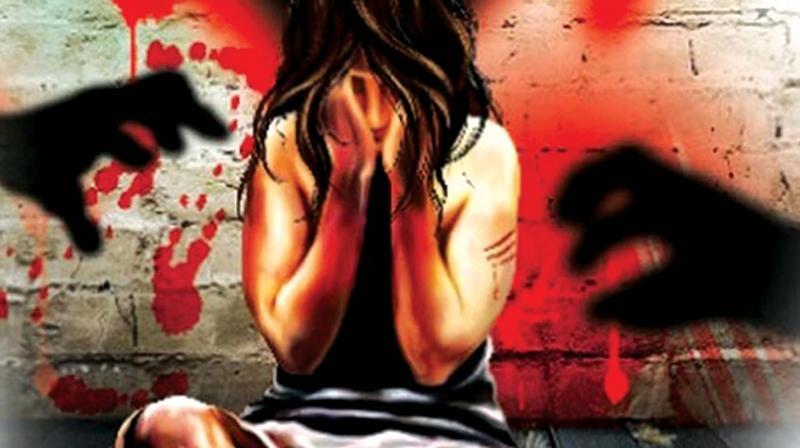
Image Used For Representation Purpose Only
There has been a spate of reports in the media recently about sexual assaults on women/girls with disabilities lodged in institutions. After Muzzafarpur, Deoria and Bhopal, now comes news from Dehradun.
Several girl students of the central government-run National Institute of the Visually Handicapped (NIVH) located in Uttarakhand’s capital have alleged that they were groped, their private parts touched and lewd remarks passed by a teacher. Though an FIR has been lodged against him, the police are yet to arrest him.
This is not the first time that such an incident has been reported from this campus. On the basis of allegations about sexual harassment raised by some boys in April 2018 against a music teacher, the administration proceeded against him. This time, the allegations against another music teacher have come from some girl students. This teacher, it is alleged, was involved in some incidents earlier also. Had those at the helm heeded the distress calls of the students and taken remedial action, a repeat could have been avoided.
This is all the more tragic since the institution was headed by a visually impaired lady who has done pioneering work on issues concerning women and girls with disabilities. Though the lady has since been transferred, she cannot be absolved for her failure in discharging her responsibilities. She has failed to protect the interests of the students under her care. She stands accountable for shattering the faith of parents who have sent their wards from far-flung areas to this institution. Even if one were not to accuse the Principal and Vice-principal of willfully shielding the culprit, they would stand accused under the Protection of Children from Sexual Offences Act for not reporting such incidents to the police despite having knowledge of them. It is also unlikely that the Principal and Vice-Principal to whom the children had reported the violations had not confided in the Director.
Is there any policy in place?
Did the institute have a child protection policy mandated by the POCSO Act? If it had one, were the children made aware of such a policy and the remedies prescribed under it? Was the administration sensitised to the contents of such a policy and the guidelines under the POCSO Act? Being an institution that is meant for a category of the disabled, are the staff and students made aware of the provisions contained in the Rights of Persons with Disabilities Act, which, amongst others, provides for punishment for a person who “being in a position to dominate the will of a child or woman with disability and uses that position to exploit her sexually”? These are the questions that those heading the institution will have to answer.
Procedural Lapses
Students complain that male staff enter the girls’ hostel at will; doors of many of the washrooms and bathrooms do not have latches; students are prohibited from keeping doors and windows closed etc. Given these settings, students residing within the campus feel overpowered by a sense of insecurity. Do not these amount to sexual harassment?
Violating the mandate of the POCSO Act, statements of the victims were recorded at the police station, and not at their ordinary place of residence or at a place they were comfortable with, as prescribed under the Act. In another procedural lapse, parents of these students were not informed while these statements were being recorded. This points to a downright lack of understanding of the POCSO Act, both within the police machinery and the officials of the institution.
Such transgressions also underline the need to put in place monitoring mechanisms for all such institutions where the disabled, especially women, are housed. Cases of abuse of disabled girls and women housed in various institutions has been documented by the US-based Human Rights Watch in its report released in 2014. The Justice Verma Committee, among other things, had recommended that the High Courts should act as oversight mechanisms for such institutions. It would have been a different story had these mechanisms been in place.
Disabled women are more vulnerable
Considered soft targets, girls and women with disabilities are more vulnerable. In many cases victims are unable to comprehend or communicate about such acts of violence or assaults they face. Some reports suggest that they are up to three times more likely to be victims of physical and sexual abuse as compared to other women. The National Crimes Record Bureau does not maintain disaggregated data on attacks on disabled women. This prevents a comprehensive understanding of the magnitude of the problem.
More importantly, since the incident would have hurt and brutalised the victims and can also result in both short- and long-term harm, including depression, post-traumatic stress disorder, poor self-esteem, anxiety disorders etc. it is essential that the victims be provided counselling.
The Standard Operating Procedures (SOP) on dealing with such cases should also refer to the specific needs of women with disabilities at each stage of the investigation and the role of different agencies. A greater sensitisation of police, the officials manning institutions on laws and guidelines under such legislations, as also the need to put in place monitoring mechanisms, is urgently needed.
Get the latest reports & analysis with people's perspective on Protests, movements & deep analytical videos, discussions of the current affairs in your Telegram app. Subscribe to NewsClick's Telegram channel & get Real-Time updates on stories, as they get published on our website.









